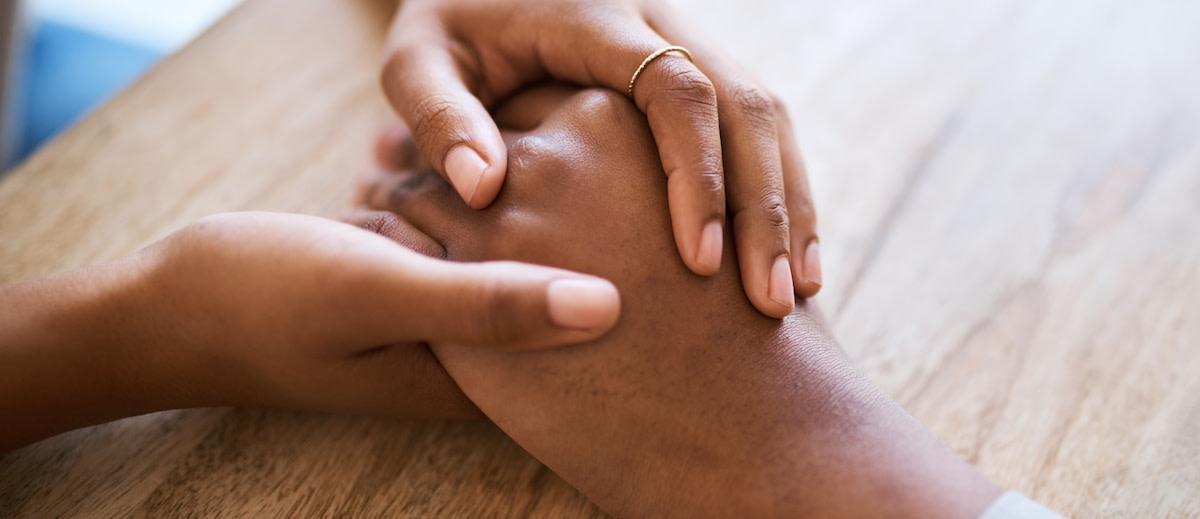Collective Trauma Explained: How to Practice Collective Healing
Written by MasterClass
Last updated: Aug 16, 2022 • 4 min read
Traumatic experiences can affect an entire group of people, rather than just one person on an individual level. These shared experiences can sometimes expand to include all the citizens of a nation or even of the entire world. Collective trauma like this is difficult to overcome, but it’s possible to grow and change for the better as individuals and societies because of events like these.
Learn From the Best
What Is Collective Trauma?
Collective trauma refers to a shared traumatic experience for a wide array of people. While everyone might internalize or suffer from this trauma differently, they all still experience the essential pain and destabilization of the event itself. This can lead to wide swaths of the population developing mental health conditions like clinical depression, generalized anxiety, or post-traumatic stress disorder.
The field of epigenetics, one of the current frontiers in psychology and biology, suggests collective traumas like these affect human beings down to their most essential components. Those who experience a collective trauma might pass on their own emotional responses to such an event to their descendants for generations. Overcoming intergenerational trauma like this requires time, patience, and active self-care.
6 Examples of Collective Traumas
Collective traumas can manifest a wide range of events. Here are seven prominent examples from the last century or so:
- 1. The 2008 recession: The impact of collective trauma can begin in the economic sphere before spreading to the emotional or interpersonal one. For that matter, traumatic events can sometimes unfold over the course of months rather than a single day. The 2008 financial crisis and ensuing recession exemplified both these possibilities, leading to a prolonged period of despair and fear about economic security across the globe.
- 2. The COVID-19 pandemic: From 2020 onward, the COVID-19 pandemic placed a heavy burden on the private and public healthcare systems, destabilized the global economy, and disrupted normalcy for nearly everyone on the planet. The coronavirus ultimately spread into every country.
- 3. The effects of Hurricane Katrina: Natural disasters are some of the most commonplace triggers of collective trauma throughout history. In 2005, as New Orleans endured torrential flooding, widespread unrest, and economic insecurity, citizens came together to heal from their collective trauma in real time.
- 4. The Holocaust: This historical trauma represents one of history’s darkest episodes. To this day, Holocaust survivors and their descendants implore the wider world to never forget the pain and mass brutality they suffered under the boot of Nazism and anti-Semitism.
- 5. The murder of George Floyd: In June 2020, people throughout the United States saw a nearly ten-minute video of white police officer Derek Chauvin kneeling on the neck of an unarmed Black man named George Floyd. In the wake of Floyd’s death, a national movement sprung up to address the present inequities faced by Black people and deal with the racial traumas of the past.
- 6. The September 11 attacks: On the morning of September 11, 2001, terrorist attacks in New York and Washington, DC, changed the face of the modern world. As people sought to rebuild, the world got a real-time example of how people can band together to heal from collective trauma.
How to Reduce the Impact of Collective Trauma
Collective trauma is always immensely painful and difficult to overcome. These tips can help you and your community grieve and grow in the wake of tragedy:
- Channel pain into purpose. When people experience the effects of collective trauma, they might feel the impulse to let the pain of the experience overwhelm them. In such a scenario, remember you are more adaptive and resilient than you might think at first. Work alongside your community to rebuild in the wake of these traumas. Remind yourselves collective traumas have served as inspiration for both artistic and political movements to effectively create positive change.
- Control your media intake. In times of acute stress, try to take breaks from media sources causing you to become more upset. While remaining informed in the wake of tragedy is important, make sure to tend to your own mental and physical health and allow yourself time to process and grieve.
- Lean on loved ones. Turn to those you love the most for relational and social support in the wake of collective trauma. This can be a boon for your mental and emotional health when you feel you’re running on zero. You’ll be able to help each other cope as you all grieve together.
- Seek professional help. Mental health professionals can help you maintain a baseline of well-being, contentment, and inner strength even in the face of collective traumas. Seek out a therapist who can understand where you and your community are coming from in the wake of a shared catastrophe. They’ll help you deal with the pains and stressors unique to your situation.
- Try to help others in need. Sometimes the best way to heal from a traumatic experience is to help other people who went through the same thing. This collaborative and collective healing enables everyone who experienced a collective trauma to come together and head toward better days.
Learn More About Black History
There’s a lot of information that history textbooks don’t cover, including the ways in which systems of inequality continue to impact everyday life. With the MasterClass Annual Membership, get access to exclusive lessons from Angela Davis, Dr. Cornel West, Jelani Cobb, John McWhorter, Kimberlé Crenshaw, Nikole Hannah-Jones, and Sherrilyn Ifill to learn about the forces that have influenced race in the United States.
